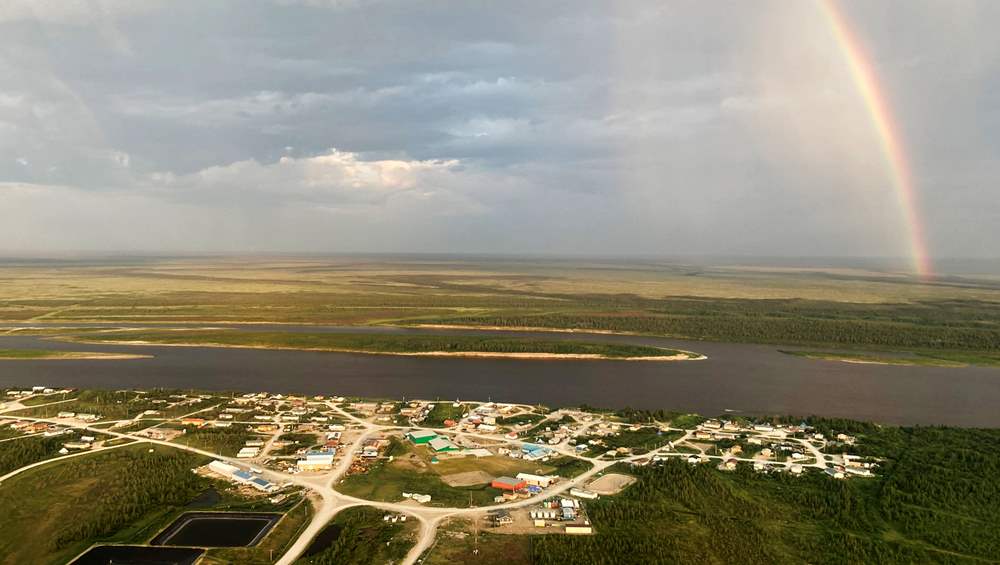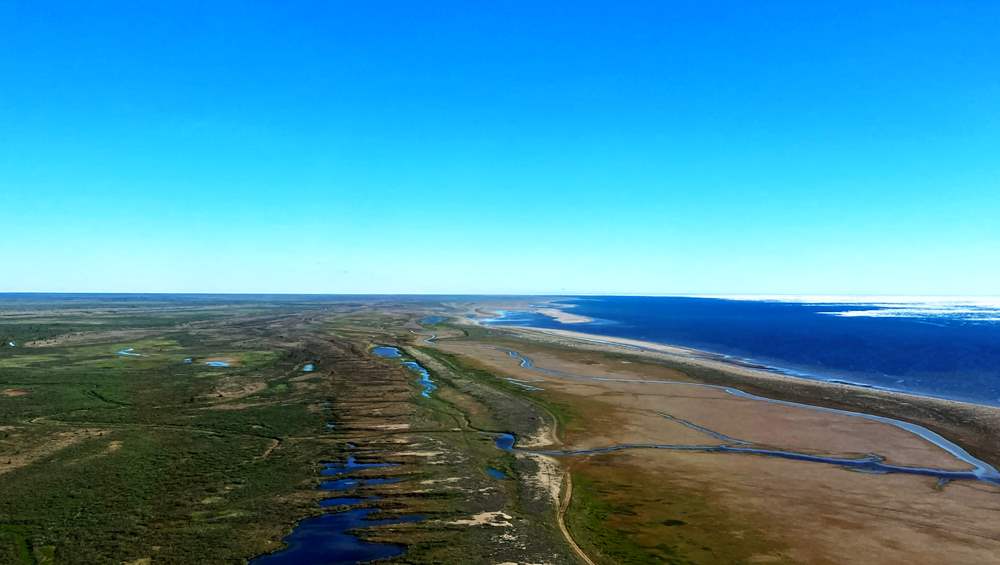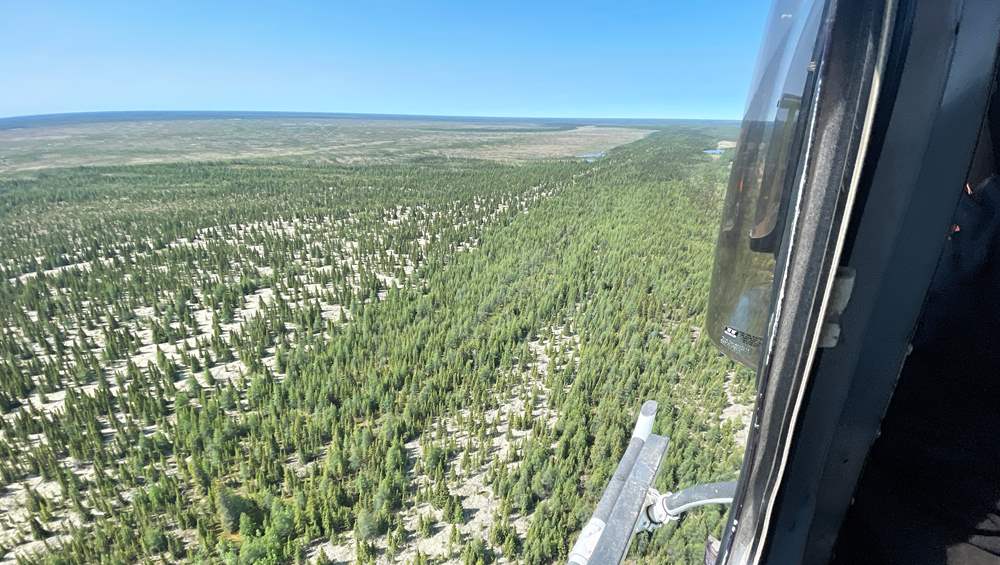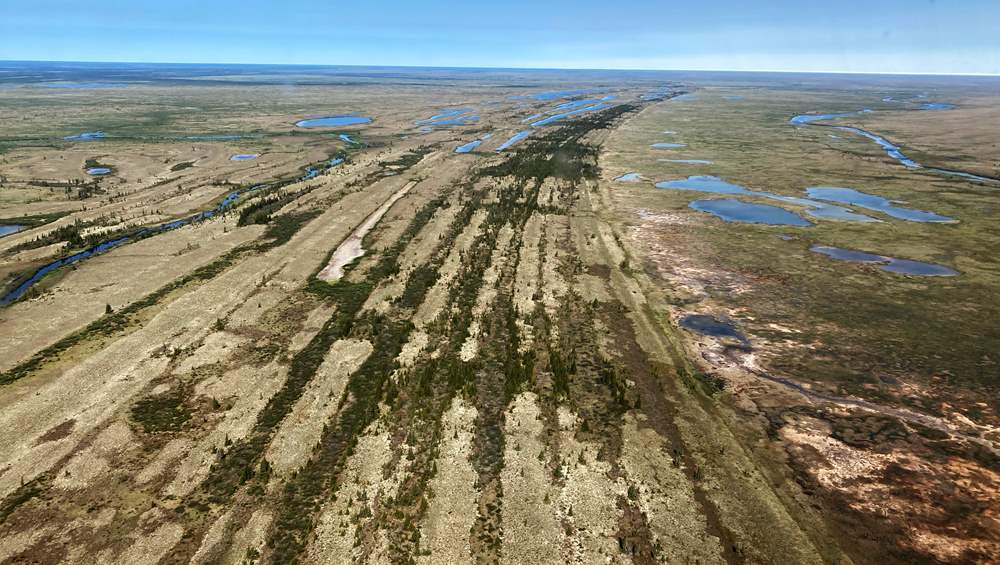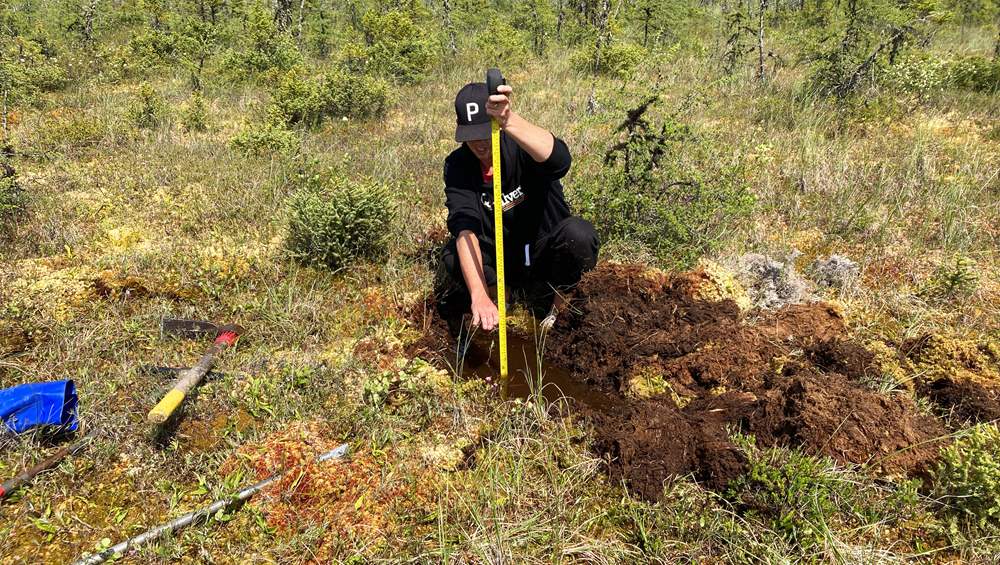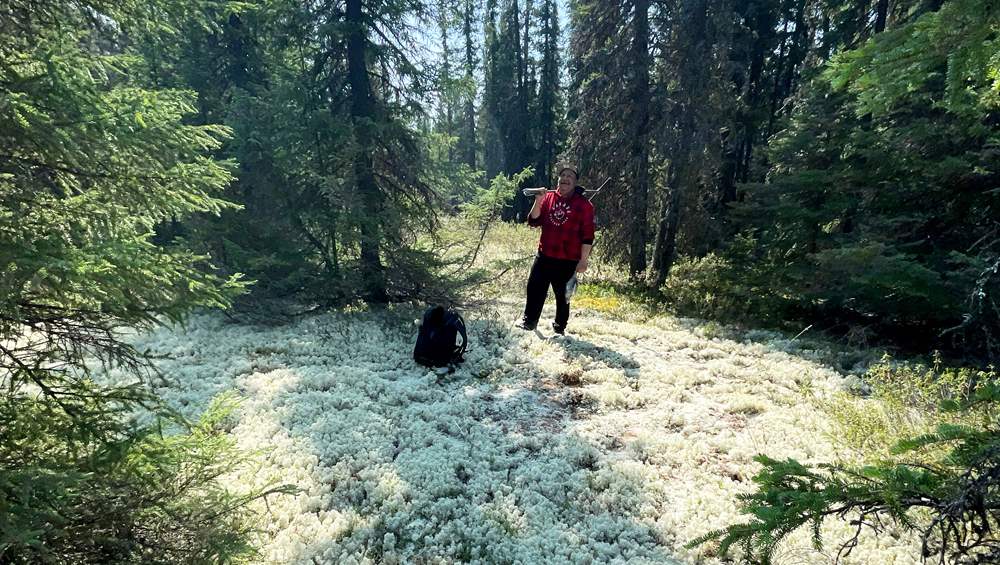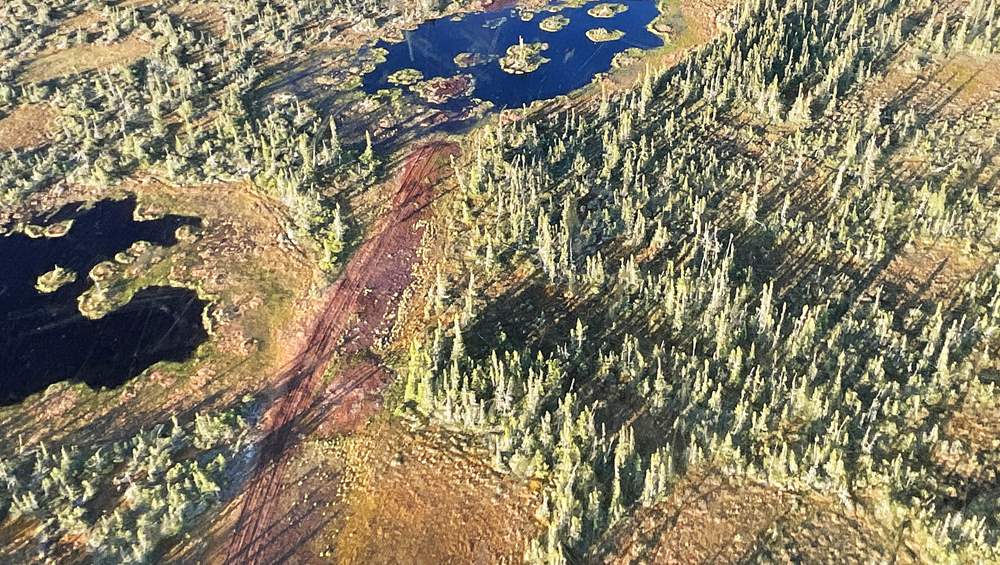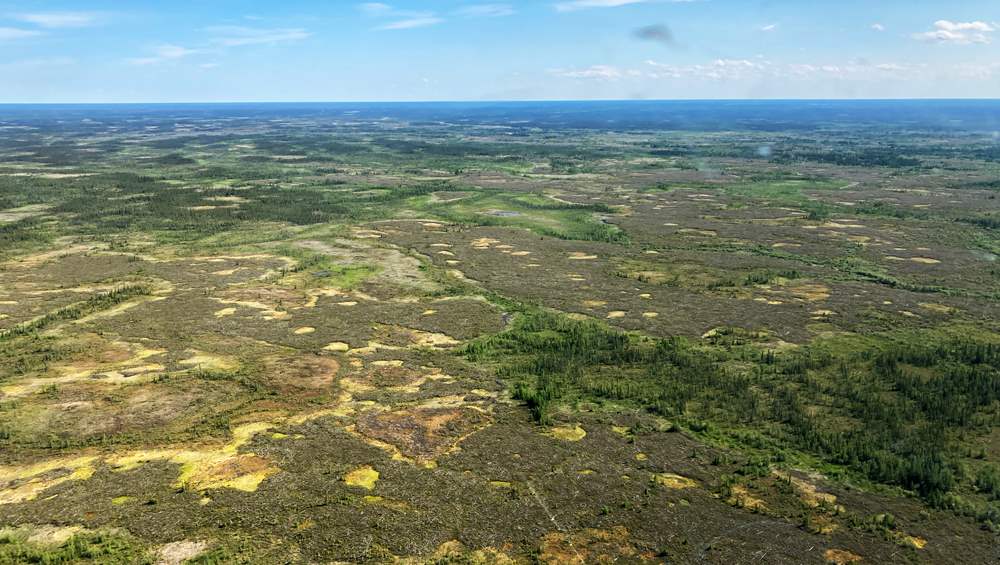Fort Severn First Nation Winter Road Relocation Study
Winter roads have been lifelines for remote northern communities for decades. Inaccessible by permanent or all-season road networks, these communities rely on winter roads as a cost-effective means of ground transportation for goods and services such as the delivery of fuel, food, construction materials and equipment.
Fort Severn First Nation is the most northern community in Ontario, located at the mouth of the Severn River on the coast of Hudson Bay. Situated on the coastline with no permanent all-season road access, the remote community relies on their winter road network to transport supplies. Climate change has severely reduced the serviceability and sustainability of the Fort Severn winter road that was constructed through organic terrain and lakes.
KGS Group collaborated with the community, Keewaytinook Okimakanak, and environmental scientists to examine the feasibility of the relocation and redesign of the existing winter road. Alternative options were developed by using climate sensitive routing and construction strategies optimized through geotechnical investigations and a helicopter reconnaissance program. The team prioritized options that were adaptive to climate warming and minimized overall environmental impact while keeping cost in mind. Preliminary environmental studies were also completed to initiate some of the environmental work that would be required as part of an environmental assessment process.
The final result of the study includes a plan for a climate-resilient winter road that will enable vital access to the community despite the challenges of climate change. This new approach to re-routing winter roads considers environmentally and culturally sensitive areas while setting the community up for future all-season access.
